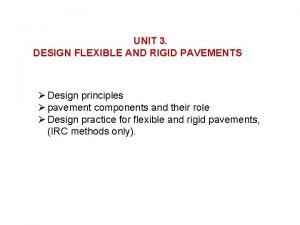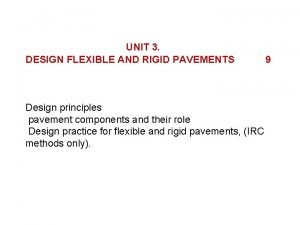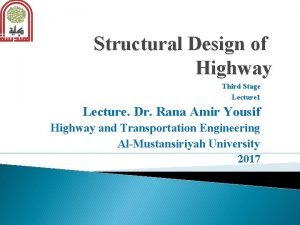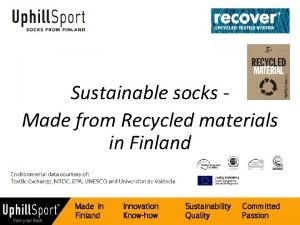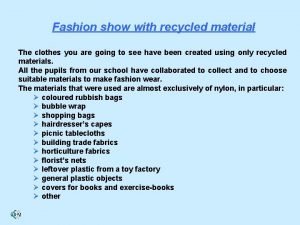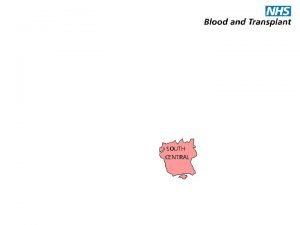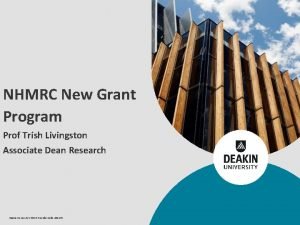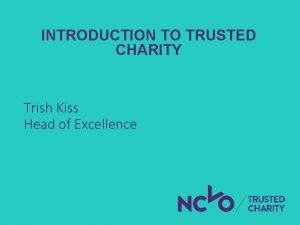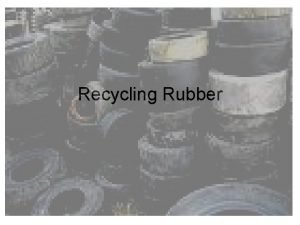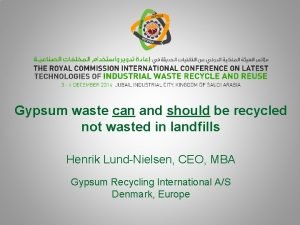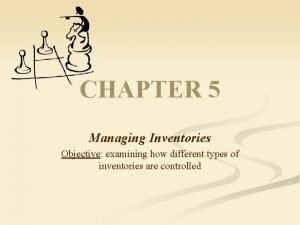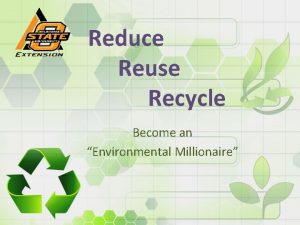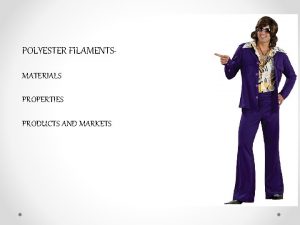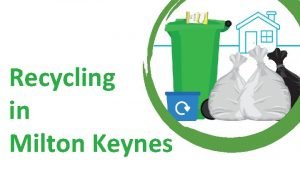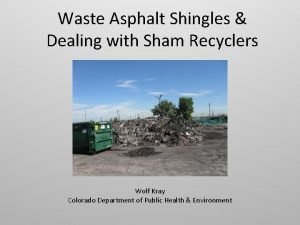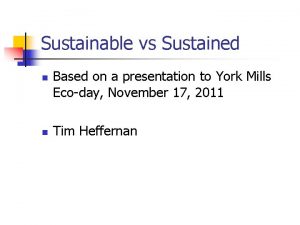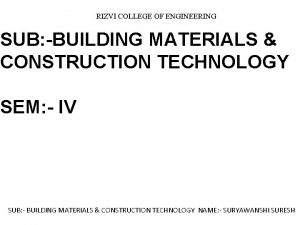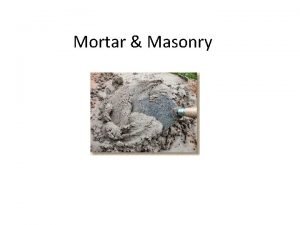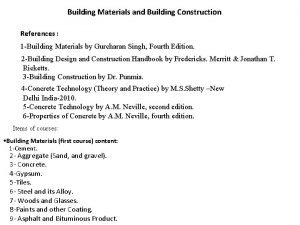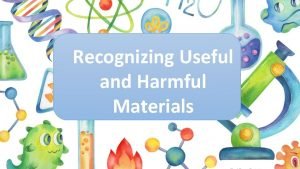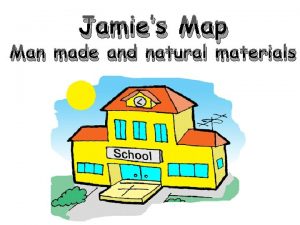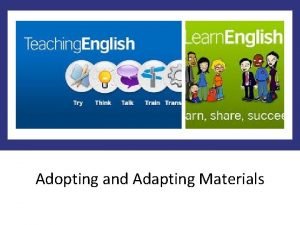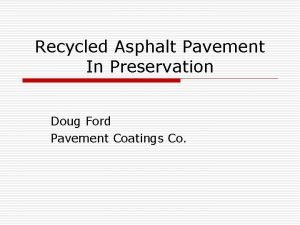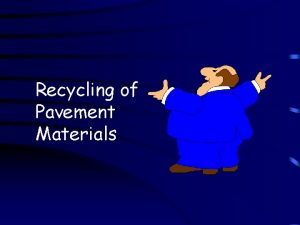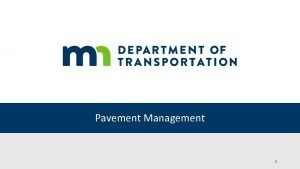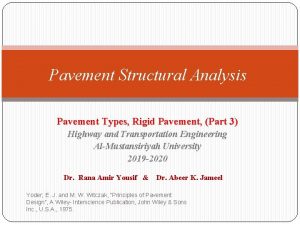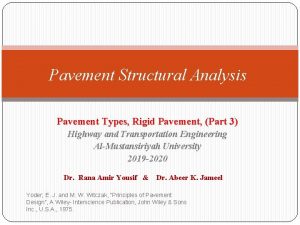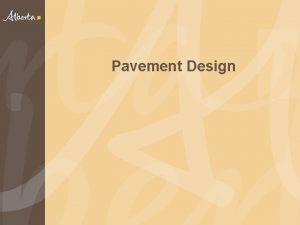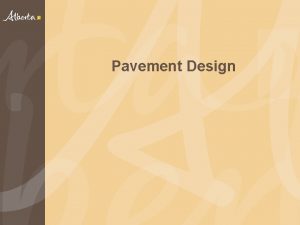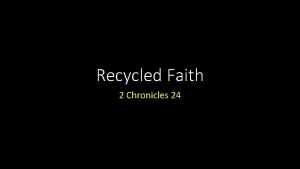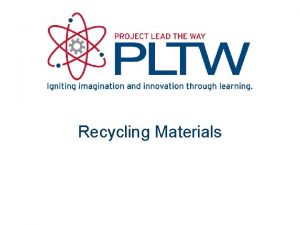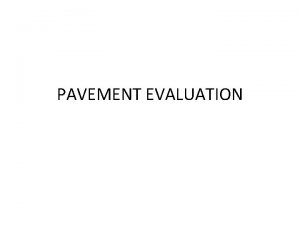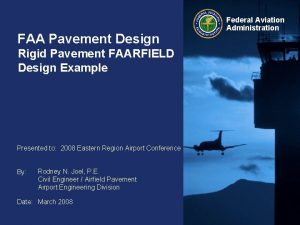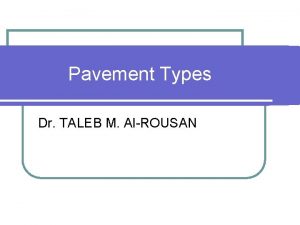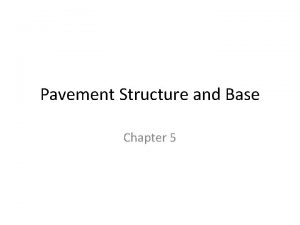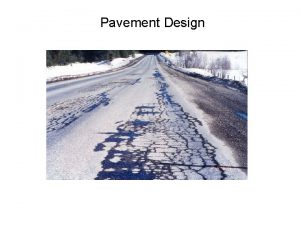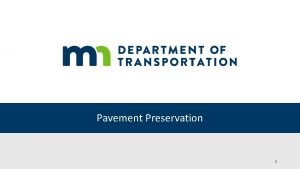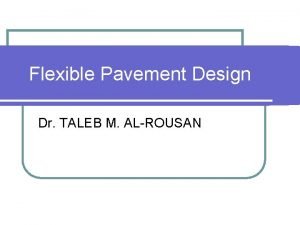Use of Recycled Materials in Pavement construction Trish


































- Slides: 34

Use of Recycled Materials in Pavement construction Trish Mc. Gee, Senior Manager, EY - Climate Change and Sustainability Services 14 May 2015

Use of Recycled Materials in Pavement A number of organisations have been involved for nearly 20 years: ► Sustainability Victoria ► MAV ► Vic. Roads ► Resource and Recovery Industry ► Local government ► Industry ► Net Balance/Eco. Buy/EY As a result the industry and products have evolved.

Environmental Benefits ► ► ► Increase the life of landfills, recovering recycled materials. Increases life of non renewable quarry materials Old buildings and bottles build new roads. Recycled concrete provides a carbon benefit of up to 65% over equivalent virgin quarried material. Recycled crushed concrete are less dense than traditional quarry products, providing a 10 -20% weight saving, delivering more material per dollar.

Local Government Roads 85. 6% of Australia’s 887, 748 km road network are managed by local government! Victoria - Of 200, 340 km Councils manage 176, 000 km !

What is important to Local Government? ► ► ► Buy Recycled Business Case Availability and reliability of supply Quality Cost impacts and transport Specification Demonstration of use MAV Survey in 2013 – Use of Recycled Pavement materials Driven by reports of shortages of quarry materials

Business Case ► ► ► 6 Report: ‘Recycled materials in pavement construction’ Understand availability and benefits on supply of virgin vs recycled material Assisting local government to make an informed and confident choice to use recycled materials in pavement construction Being able to present the case to senior management http: //www. sustainability. vic. gov. au/services-andadvice/local-government/recycled-materials-in-pavement

Position of Quarry Industry ► ► ► ► Not a shortage of supply as lack of availability New quarry approvals difficult and costly, up to $1 million for $10 million, 200, 000 tonne quarry Councils conflict – need aggregate but reluctant to approve new quarries, and risk adverse. Future use of land needs to considered beyond quarry in planning process Environmental/fauna overlays make process onerous Community concerned about encroachment of quarries Encroachment risk of buffer zones

Availability of Pavement Materials ► ► ► 8 20 million tonne of material required for roads 1 million current used is recycled, 3 million stockpiled or landfilled Recycled material mainly metropolitan and within closer to CBD than quarries Recycling reliant on demolition Both virgin and recycled materials are reliant on construction activity Lack of experience in contractors and council officers in using recycled materials

Victorian quarry and recycling infrastructure

Regional maps – Geelong /Ballarat Central Pavement materials resource map Ballarat, Golden Plains, Hepburn, Moorabool, Pyrenees, Queenscliffe, Surf Coast There is strong availability of clay and basalt towards Geelong and stretching north east to Ballarat (as identified in extensive extractive industry interest areas). The Geelong area is reasonably well serviced by at least four C&D recycling facilities, while at least two facilities operate in Ballarat. . C&D Recycling facility Quarry or mine area (existing) Current extractive industry tenement Extractive Industry Interest area

Cost impact and transport ► ► ► Price is comparable - $18 -30 per tonne, depending on quality Recycled material can be transported up to 100 km but competitive distance is 20 km Virgin materials transported up to 30 km Regional areas may not be as cost effective for recycled material, however alternate solutions include using mobile crusher Pricing information collected by DSDBI

Glass processing infrastructure

Quality ► Recycled material for pavement should meet the Vic. Roads specifications ► Significant research has shown that recycled concrete, glass and asphalt can perform as well or better than virgin (Swinburne, ARRB) May have different properties to virgin but is fit for purpose and appropriate to your needs NATA accredited testing ensures it is fit for purpose ► ►

Vic. Roads and major projects using recycled materials ü ü ü ü Eastlink Deer Park by-pass Peninsula Link Western Ring Road upgrade Melbourne Airport Grand prix M 8

High level ‘descriptive’ business case ► ► The business case for a Council to use recycled over Relies on recycled materials being accepted as a substitute for virgin material: An economic decision based on the relative price of recycled and virgin material. ► Sensitive to the location of a pavement project and relative availability of local recycled or virgin materials. ► Business case will strengthen in the future: | when the available supply of virgin materials from existing local quarries becomes exhausted; and viable quarry locations become increasing sterilised | if the location of recycling infrastructure and local supply of waste materials becomes more dispersed, particularly in regional areas ► Will have long-term benefits (i. e. environmental/social) not captured in price of material ► Does not diminish the need to develop a sustainable quarrying sector; virgin materials are still be required.

Recycled Materials - Asphalt ► Asphalt from old roads and car parks ► Vic. Roads accepts up to recycled asphalt in road base materials maximum of 20% ► Recycled asphalt (RAP) supported in hot mix asphalt up to 30% in base course asphalt. Widely accepted within industry ► RAP perfect for hardstand areas, better performance and dust reduction

Materials Recycling – Glass Fines ► ► ► Glass from kerbside collections produces glass fines which cannot be manufactured into new glass bottles Glass fines are stockpiled or sent to landfill. Glass fines are crushed to produce a recycled sand material Can be used as sand replacement in asphalt manufacture and in applications such as pipe bedding and filter material Vic. Roads specifications (Technical Note 107) allow for use in Asphalt manufacture and as a component of blended road base/ sub base up to 10%

Materials Recycling –Concrete/Brick Rubble ► Recycling Construction & Demolition (C&D) waste, consisting of concrete, asphalt, bricks and rubble provides diversion of waste from landfills including the reuse of steel from concrete ► Vic. Roads supports recycled crushed concrete materials for road construction ► Recycled crushed concrete Section 820, design equivalent to Section 812 crushed rock ► Class 2, Class 3, Class 4, Pipe bedding material, hard stands, footpaths, and car parks

Materials Recycling – Toner, and others • Toner Pave - Partnership between Downer and Close the Loop. • Toner modified GTR (Ground Tyre Rubber) • Acrylic emulsions (Paint) • Oil • Fly ash

Specifications and Vic. Roads ► ► ► ► Vic. Roads accredits recycled product suppliers. (Refer to RC 500. 3 for accredited suppliers) Increasing Vic. Roads activity in using recycled materials in pavements and results in new standards (15 -30% glass/brick) Specification testing (15% & 30%) and workshops Vic. Roads currently reviewing technical note 107 and specifications One specification 812 & 820 for road base materials. Self regulation Code of Practice Vic. Roads 5% weighting for sustainability/recycled content and local purchasing

Recycled Roads to Zero Waste Municipal Association Victoria - (MAV) Swinburne University, ARRB, Manningham, Brimbank, Surf Coast, Bayside and Port Philip Councils, Sustainability Victoria 4 x shared pathway sites using 15% & 30% Recycled Glass Sand in 150 mm-200 mm sub-base Results 255 tonnes recycled material used Specifications developed for recycled glass in base aggregate GHD cost benefit report ARRB report

Recycled Pavement to Zero Waste Before construction After construction Steampacket Place, Geelong

Recycled Roads to Zero Waste • Brown Property Group The Avenue Estate and Village Shopping Centre, at Cranbourne.

Tasmania

NSW Waverley Council NSW Blair Street Bondi Junction

O’Brien St Bondi Junction

Western Australia Shire Augusta Margaret River 100 tonnes RCG Two sections 1 x 200 m asphalt 1 x 215 m granular 5%RCG, in conformity with Australian Standard AS 2150 and relevant Aust Roads and AAPA specifications

Toner Pave – 35 demonstration sites Victoria Boroondara Hume Greater Dandenong Banyule Manningham Kingston Nillumbik Mornington Peninsula South Australia City of Salisbury New South Wales City of Sydney Warringah

Downer Low CO 2 Asphalt Nearly 1 million tonnes recycled mix supplied Over 3100 jobs/projects 20% Reduction In Emissions 430, 000 km Car Travel / 457 Trees

What about OHS? Identified as no greater risk than natural aggregate

Specifications for recycled glass

Recycled materials in pavement construction Recommendations for Councils: ► Commit to use of recycled material which meets specifications and cost (Council choice) ► Identify current availability of recycled material and potential barriers in your Council ► Require contractors to report on their use of RM ► Develop a strategy to increase use of recycled content: discuss with contractors ► Include Vic. Roads spec 820 and 821 for road design ► Refer to Business case for your region at www. sustainability. vic. gov. au

Acknowledgements Chris Jeffreys Dean Reid Mark Barraclough Vicki Shelton Jane Street John Hennessy Steve Morriss Graham Newman John Hassall - formerly from PSF - Resource Co - Alex Fraser - City of Greater Geelong - Sustainability Victoria - MAV - Close the Loop - Vic. Roads - City. Wide

Thank You – Questions?
 Flexible pavement
Flexible pavement Flexible pavement and rigid pavement
Flexible pavement and rigid pavement Rigid and flexible pavement
Rigid and flexible pavement Recycled material socks
Recycled material socks Recycled materials fashion show
Recycled materials fashion show Trish armstrong child
Trish armstrong child Trish collins nurse
Trish collins nurse Trish lauriane
Trish lauriane Trish misbehavior
Trish misbehavior Trish livingston deakin
Trish livingston deakin Trish kiss
Trish kiss Trish rowland
Trish rowland Can rubber be recycled
Can rubber be recycled Objectives in making christmas lantern
Objectives in making christmas lantern Can gypsum be recycled
Can gypsum be recycled Non recycled inventory examples
Non recycled inventory examples Recycled
Recycled Lantern making contest
Lantern making contest Rpet filament
Rpet filament Mk recycling
Mk recycling Recycled asphalt colorado springs
Recycled asphalt colorado springs Arch of constantine dimensions
Arch of constantine dimensions On average 113 204 aluminum cans are recycled in a minute
On average 113 204 aluminum cans are recycled in a minute Recycled icon
Recycled icon Construction materials names and pictures
Construction materials names and pictures Artificial construction materials
Artificial construction materials Surkhi construction materials
Surkhi construction materials Building references
Building references Special construction materials
Special construction materials Landscape construction materials
Landscape construction materials Cant stop the feeling go noodle
Cant stop the feeling go noodle Useful materials at home examples
Useful materials at home examples Man made materials
Man made materials Adopting and adapting teaching materials
Adopting and adapting teaching materials Direct materials budget with multiple materials
Direct materials budget with multiple materials
